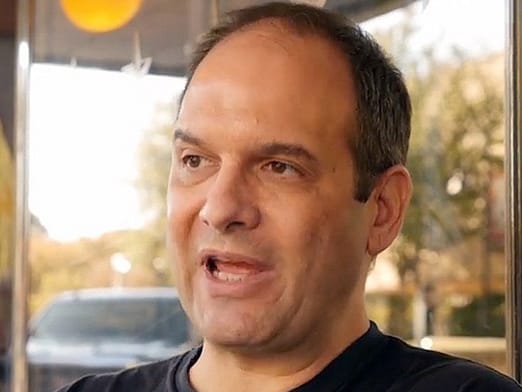
The irony of the last name isn’t lost on Dr. Fred Aquino.
It’s pronounced “Aqueeno” and comes from the same root as “Aquinas,” as in Thomas Aquinas, the 13th century Dominican friar who heavily influenced Western thought and is regarded as a saint in the Roman Catholic Church. Both names derive from the town of Aquino, Italy.
ACU’s Aquino doesn’t mind at all if the name turns into a topic of discussion and curiosity about any possible ties to the saint.
“I’ve always said I don’t mind the association,” Dr. Aquino joked.
When looking at the rigor of Dr. Aquino’s work, it’s easy to see why such an association might be made. Dr. Aquino’s list of publications and projects is impressive. His most recent work, “Sensing Things Divine: Towards a Constructive Account of Spiritual Perception,” is scheduled to be published by Oxford University Press in 2019. The co-author, Paul Gavrilyuk, was a guest speaker for a conference at McMurry University in March.
Since joining the ACU faculty, Dr. Aquino has combined his love of research and his love of teaching with no conflict between them. ACU is known as a “teaching school,” which is important for students, but it doesn’t mean faculty can’t continue to learn, as is evident in some of Dr. Aquino’s recent research projects.
Dr. Aquino picked up a good piece of advice about teaching, conducting research, and publishing from a professor, Dr. William J. Abraham, while getting his doctorate in religious studies at SMU.
“Part of getting a Ph.D,” Abraham advised, “is that you are now entering into the world of scholarship as a scholar.”
Dr. Aquino took the advice to heart and apparently impressed his professor. In 2017, the two men edited “The Oxford Handbook of the Epistemology of Theology,” also published by Oxford University Press.
Dr. Aquino came to ACU to teach in 1998, two years before finishing his doctorate at SMU. He had earned three degrees at ACU – a bachelor’s in biblical studies in 1989, Master of Divinity in 1993, and Master of Arts in New Testament Greek in 1994.
Anyone talking to Dr. Aquino for just a few minutes learns that the word “epistemology” is a favorite. It may cause some people to reach for a dictionary – it means a study of the nature of knowledge – but to Dr. Aquino, the word is a staple of everyday conversation. Among his research interests are “Religious Epistemology,” “Epistemology of Theology” and “Virtue Epistemology.”
But don’t worry about carrying a dictionary into a conversation with Dr. Aquino. His students and acquaintances find him accessible and eager to share knowledge. And he is a frequent speaker at conferences, like one he will attend in January in Romania.
But most of Dr. Aquino’s work is done on the ACU campus. He teaches primarily in the Graduate School of Theology, but he also is director of a philosophy minor and teaches one philosophy course each semester to undergraduates.
Among Dr. Aquino’s many interests is the life of John Henry Newman, a 19th century theologian who originally was an Anglican priest and later was ordained a priest in the Roman Catholic Church. Dr. Aquino grew up in the Catholic Church, but lost his faith as an adolescent. He later regained his faith while serving in the Air Force and found a home in a Church of Christ congregation. However, his teaching and research have put him in conversation with the intellectual tradition of his childhood faith. In fact, his dissertation, “Communities of Informed Judgment: Newman’s Illative Sense and Account of Rationality,” was published in 2004 by Catholic University of America Press. He also was invited in 2017 to give a lecture on Newman at Oxford University.
One thing Dr. Aquino’s students will never lack is an abundance of feedback. Aquino recalled getting five pages of notes about a five-page paper while earning his doctorate, and that is something he appreciated as a student. Now, he is returning the favor.
“I think that if you ask students,” he said, “the one thing they would say I do well is I help them to learn how to think, write and read better.”
That’s the perfect legacy for a professor who loves to combine teaching with research. A goal as a professor is to get students to explore their horizons and figure out what they actually think. He has heard students discuss their struggles with faith or their attempt to express what they actually believe for the first time. He talks to them about the theology of scripture. It’s not a textbook on science, economics, or political philosophy, which is a new idea to some students. But it’s one they have come to appreciate as they explore their beliefs.
“For most students,” Dr. Aquino said, “that’s been a liberating kind of concept.”
